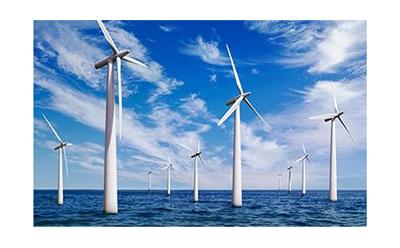SMMI expert provides written submission to the Environmental Audit Committee Inquiry on Technological Innovations and Climate Change: Offshore Wind

The Environmental Audit Committee recently launched an overarching inquiry looking at technological innovations which could contribute to tackling climate change. Each part of the inquiry will look at a specific technology currently in use or in development and consider its potential and how Government policy can facilitate the UK making the best and most cost-effective use of that technology. The first session of the inquiry is looking at offshore wind power. The Inquiry invited views on technological innovations to maximise continued uptake and effectiveness of offshore wind, and the challenges faced by the industry in delivering greater capacity.
SMMI Deputy Director Susan Gourvenec provided written evidence that addressed two questions posed by the Committee:
- How might the UK take advantage of further technological advances in offshore wind technology, particularly in relation to floating arrays?
- What is the UK industry doing to promote the sustainability of offshore wind arrays throughout their entire life-cycle from development through to decommissioning, and to improve maintenance and end-of-life repair?
Susan’s submission emphasises that (i) consideration of technology solutions for seabed survey, mooring and anchor systems, and monitoring are critical in reducing capital expenditure (CAPEX) and operating expenditure (OPEX) of offshore wind, particularly for floating arrays as developments move farther from shore and into deeper waters, and (ii) that development of intelligent and resilient offshore infrastructure and systems will enable alternative decommissioning scenarios that can in turn support the next generation of ocean infrastructure.
Harnessing the intelligence of robotics, autonomy, sensing and big data, next generation resilient engineered systems will enable cheaper, smarter site characterisation, stationkeeping solutions, monitoring and late life and end-of-engineered-life management of offshore wind infrastructure, which will accelerate the economic competitiveness necessary to scale up the UK market.
Decarbonising the energy sector is central to addressing climate change and meeting the commitments of the Paris Agreement. The oceans provide space for renewable electricity generation to meet the conventional electricity demand of an increasing and increasingly wealthy global population, as well as provide the necessary capacity for electricity generation for future liquid fuels (e.g. hydrogen, ammonia, methanol) to replace fossil fuels for aerospace, automotive and maritime transport.
Article 10 of the Paris Agreement recognises the central role of innovation in achieving mitigation and adaptation goals. Looking to the future, it is difficult to predict how individual technologies will reduce in cost or improve in efficacy, but alongside other changes technological innovation will be crucial to the UK achieving its emissions reduction goals.
You can read Professor Gourvenec’s full submission on the Government website or via Public Policy Southampton.